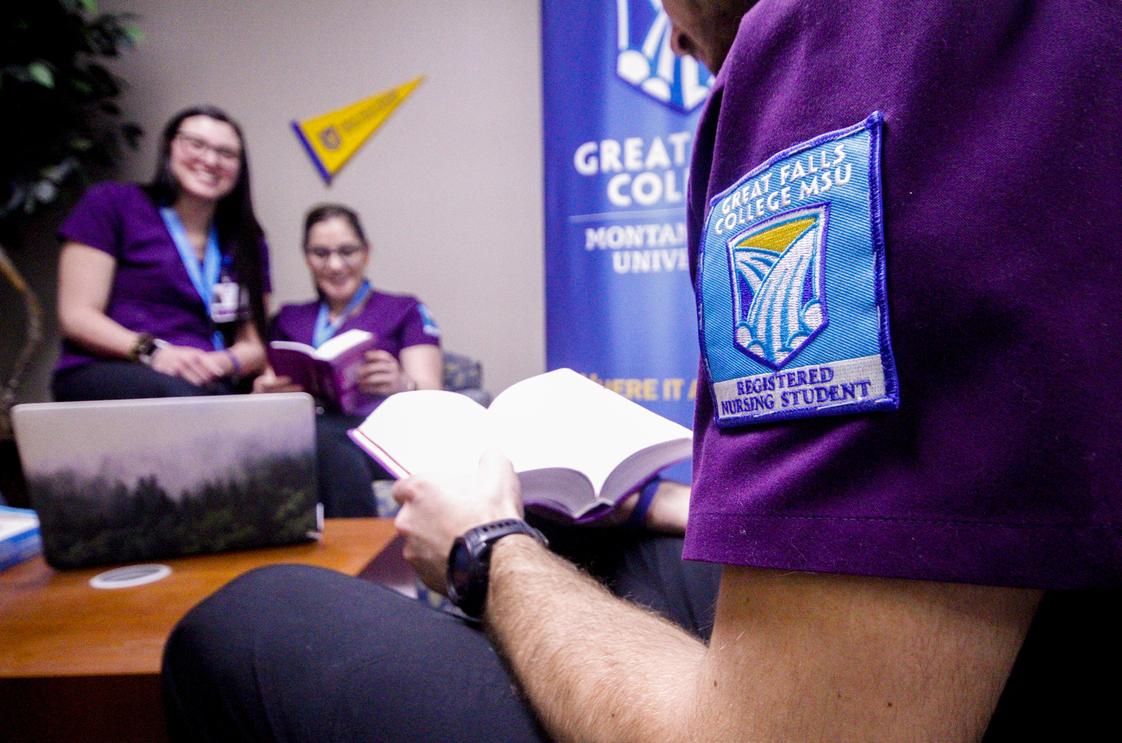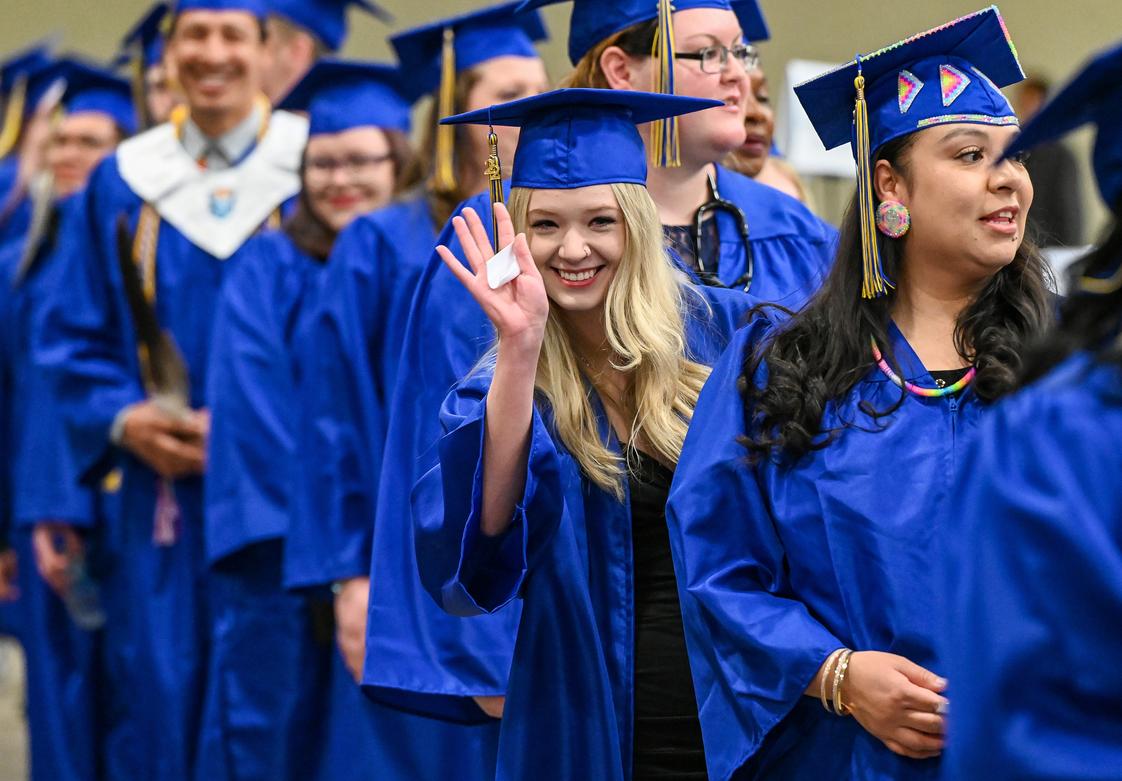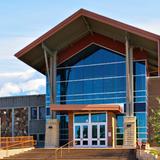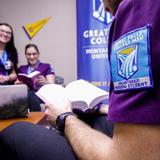- Great Falls College offers professional certificates, associates degrees, transfer and community education options. Located in Great Falls, Montana
School Highlights
Great Falls College Montana State University serves 1,886 students (29% of students are full-time).
The college's student-teacher ratio of 19:1 is higher than the state community college average of 18:1.
Minority enrollment is 22% of the student body (majority Hispanic and American), which is less than the state average of 40%.
Quick Facts (2025-26)
- Enrollment: 1,886 students
- In-state tuition: $3,294
- Out-state tuition: $9,346
- Acceptance Rate: 100%
- Student-teacher ratio: 19:1
- Minority enrollment: 22%
- Source: Verified school update
Top Rankings
Great Falls College Montana State University ranks among the top 20% of public schools in Montana for:
Category
Attribute
Community Size
School Overview
The teacher population of 100 teachers has declined by 25% over five years.
Great Falls College Montana State University
(MT) Community College Avg.
Carnegie Classification
Associate's Colleges: Mixed Transfer/Career & Technical-High Nontraditional
Associate's Colleges: Mixed Transfer/Career & Technical-High Nontraditional
Institution Level
Less than 2 yrs
At least 2 but less than 4 years
Institution Control
Public
Public
Total Faculty
100 staff
90 staff
Student Body
The student population of Great Falls College Montana State University has grown by 54% over five years.
The student-teacher ratio of 19:1 has increased from 12:1 over five years.
The Great Falls College Montana State University diversity score of 0.38 is less than the state average of 0.59. The school's diversity has stayed relatively flat over five years.
Total Enrollment
1,886 students
878 students
Student-Teacher Ratio
19:1
18:1
# Full-Time Students
542 students
321 students
# Part-Time Students
1,344 students
557 students
# Enrollment Undergraduate
188 students
188 students
# Full-Time Undergraduate Students
542 students
321 students
# Part-Time Undergraduate Students
n/a
555 students
Total Dormitory Capacity
n/a
171 students
% American Indian/Alaskan
4%
2%
% Asian
1%
1%
% Hispanic
5%
3%
% Black
n/a
1%
% White
78%
60%
% Hawaiian
n/a
10%
% Two or more races
9%
3%
% Non Resident races
n/a
1%
% Unknown races
2%
19%
Diversity Score
0.38
0.59
College Completion Rate (Students who graduate in less than 4 years)
36%
32%
Average Graduate Earnings (10 Years)
$30,900
$34,700
Tuition and Acceptance Rate
The public in-state tuition of $3,294 is less than the state average of $4,139. The in-state tuition has stayed relatively flat over four years.
The public out-state tuition of $9,346 is more than the state average of $8,788. The out-state tuition has declined by 9% over four years.
In-State Tuition Fees
$3,294
$4,139
Out-State Tuition Fees
$9,346
$8,788
Tuition Notes
$2,000 per semester for full-time students
% Students Receiving Some Financial Aid
87%
88%
Median Debt for Graduates
$10,500
$10,500
Median Debt for Dropouts
$9,034
$6,329
Acceptance Rate
100%
100%
Extracurriculars
Total ExtracurricularsTotal Extra-curric.
4 extracurriculars
ExtracurricularsExtra-curric.
Club or Organization:
Arts and Music Programs:
Associated Students of GFC MSU (Student Government)Food Pantry / Community Garden
Phi Theta Kappa
Arts and Music Programs:
GFC MSU Community Choir
Source: 2024 (or latest year available) Integrated Postsecondary Education Data System (IPEDS) , School Administrators
School Notes
- School Mascot: River Otters
- Great Falls College offerschallenging, high-demand programs in the areas of health sciences; business and accounting; computer technology; trades; and general education and transfer. Associate of Applied Science degrees, Associate of Arts degree, and the Associate of Science degree along with certificate programs provide students with choices to achieve their educational goals. If your plan is to transfer to a four-year college, you will find numerous courses that will allow you to complete the Montana University System general education core prior to transfer. Daytime, evening andonline courses are available to provide you with flexibility in scheduling. The college boasts a dynamic outreach and continuing education program to progressively address workforce training. Short-term seminars and workshops are available throughout the calendar year to provide training to employees striving to strengthen their job skills. Customized training is available to your business, providing educational opportunities specifically tailored to the needs of your staff. The college is located in southeast Great Falls on a beautiful 20-acre campus. The charm of our smaller campus is its friendly environment and the personal interaction in on-site and online classrooms.The college is accredited by the Northwest Commission on Colleges and Universities, one of six regional accrediting associations in the United States.
Frequently Asked Questions
How much does Great Falls College Montana State University cost?
Great Falls College Montana State University's tuition is approximately $3,294 for In-State students and $9,346 for Out-State students.
What is the acceptance rate of Great Falls College Montana State University?
The acceptance rate of Great Falls College Montana State University is 100%, which is equal to the state average of 100%.
What is Great Falls College Montana State University's ranking?
Great Falls College Montana State University ranks among the top 20% of community college in Montana for: Largest student body.
Recent Articles

Scholarships for Community College Students 2025
Explore updated scholarship programs, tuition data, and expert strategies for community college students in 2025.

The Rise of Technical and Vocational Training in 2025
Explore the 2025 surge in technical and vocational training—enrollment, policy, costs, and why this path is gaining ground for students and parents.

Stackable Credentials: How Community Colleges Advance Careers
Discover how community colleges use stackable credentials to build career pathways, boost earnings, and enable lifelong learning in 2025.















